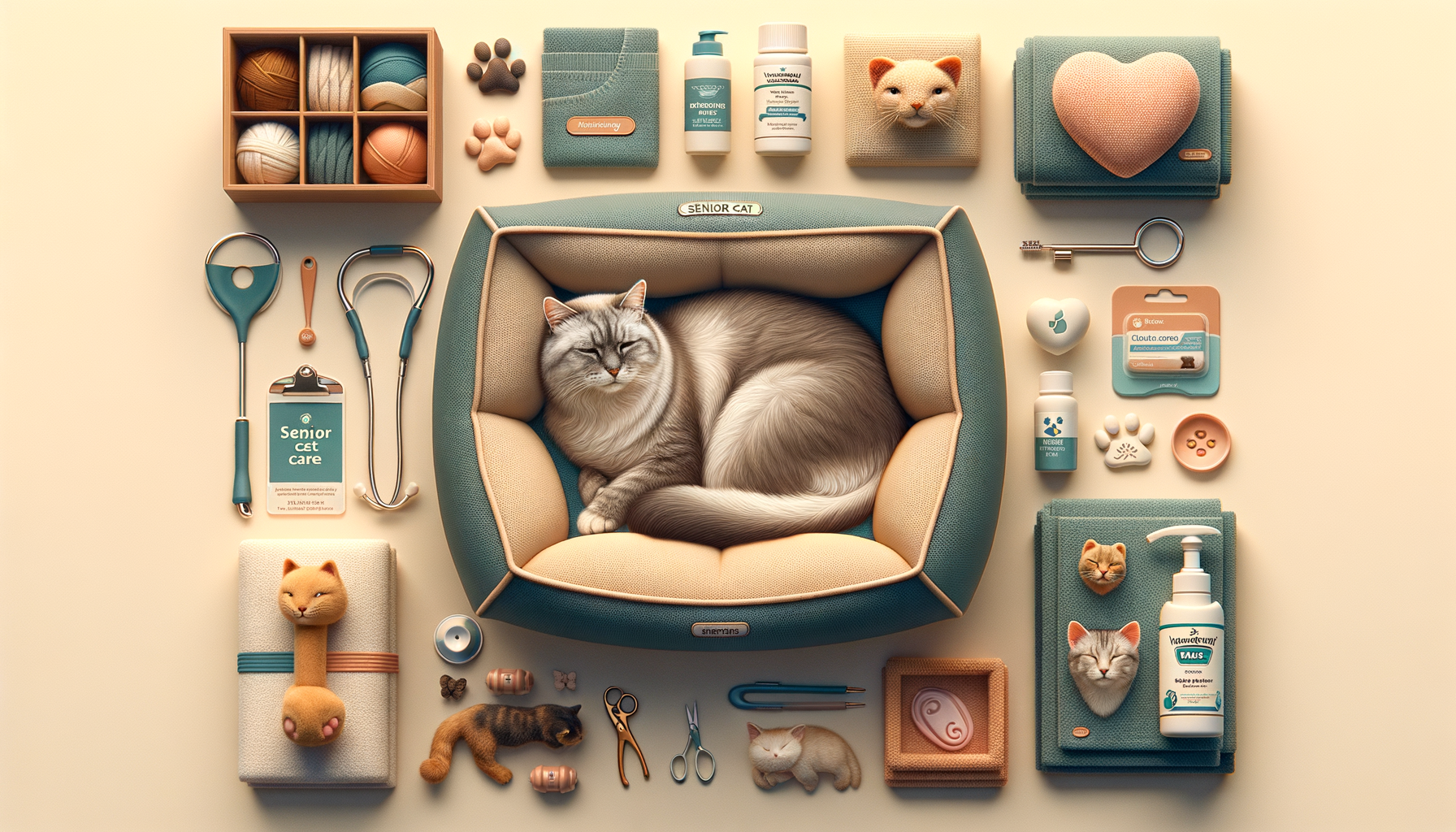Understanding the Needs of Senior Cats
As cats age, their needs change significantly, and it’s crucial for pet owners to adapt to these changes. Senior cats often require special attention to maintain their health and wellbeing. Understanding these needs is the first step in providing the support they require.
One of the primary changes in senior cats is their dietary needs. As metabolism slows down, their caloric needs decrease, but their need for high-quality protein remains. It’s essential to choose a diet that supports their aging bodies while preventing obesity. Additionally, senior cats may benefit from supplements that support joint health, as arthritis is a common issue in older cats.
Moreover, regular veterinary check-ups become increasingly important. Senior cats are more prone to health issues such as kidney disease, diabetes, and dental problems. By scheduling regular visits, you can catch potential health concerns early and manage them effectively.
Another aspect to consider is their environment. Senior cats may not be as agile as they once were, so ensuring their living space is easily accessible can prevent injuries. This might include providing ramps or steps to their favorite resting spots and ensuring their litter box is easy to access.
Vet-Approved Tips for Enhancing Senior Cat Wellbeing
Veterinarians often recommend a holistic approach to enhance the wellbeing of senior cats. This includes focusing on their physical health, mental stimulation, and emotional wellbeing.
Physical health can be supported by maintaining a balanced diet and encouraging gentle exercise. Interactive toys and short play sessions can keep your cat active without overexerting them. It’s also important to monitor their weight and adjust their food intake as needed.
Mental stimulation is crucial for keeping a senior cat’s mind sharp. Puzzle feeders and interactive toys can provide mental challenges that keep them engaged. Additionally, spending quality time with your cat through gentle petting and grooming can strengthen your bond and provide emotional support.
Creating a stress-free environment is also vital. Senior cats may become more sensitive to changes, so maintaining a consistent routine can help them feel secure. Providing a quiet, comfortable space where they can retreat to when they need rest is beneficial.
Insights into Senior Cat Sleeping Habits
As cats age, their sleeping patterns often change. Senior cats tend to sleep more than their younger counterparts, sometimes up to 20 hours a day. Understanding these sleeping habits can help you provide a more supportive environment for your aging feline friend.
The increase in sleep is partly due to a decrease in energy levels and the body’s natural aging process. It’s important to ensure that your senior cat has a comfortable and quiet place to rest. A soft bed in a warm, draft-free area can make a significant difference in their comfort.
Monitoring your cat’s sleep patterns can also provide insights into their health. Any drastic changes, such as increased restlessness or difficulty sleeping, may indicate underlying health issues. Consulting with a veterinarian can help determine if these changes are a normal part of aging or if they require medical attention.
Finally, consider the quality of their sleep environment. Senior cats may benefit from orthopedic beds that provide extra support for their joints. Additionally, maintaining a calm household can prevent disturbances that might disrupt their sleep.

Leave a Reply